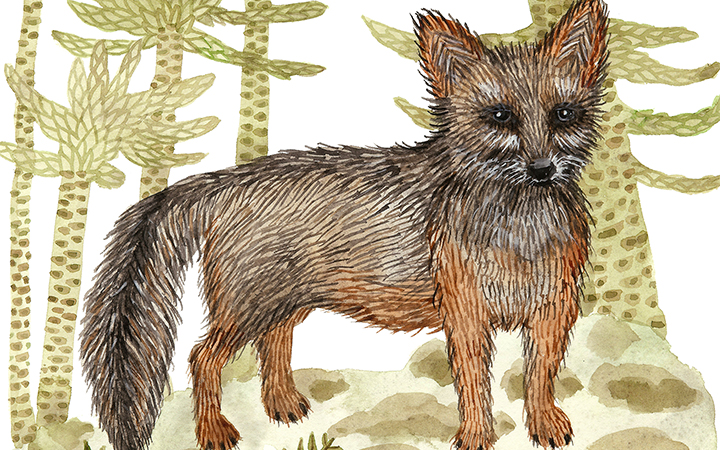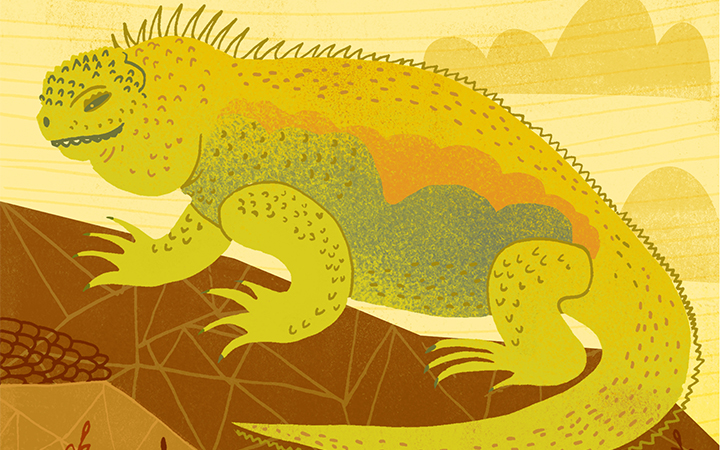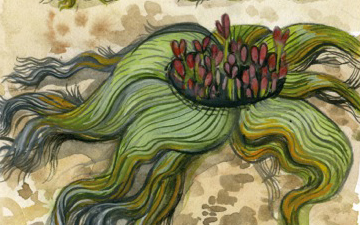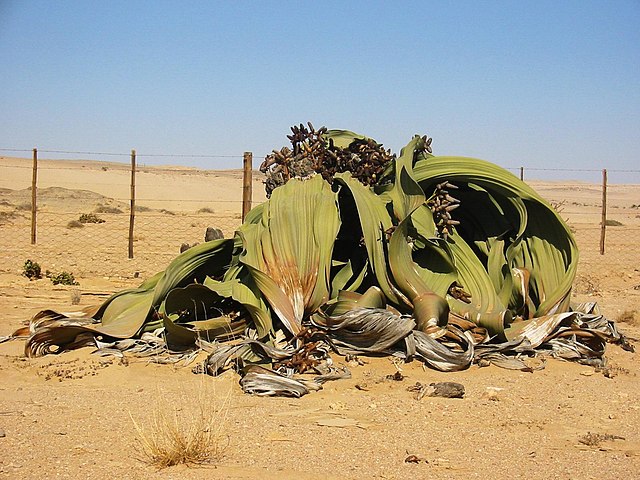Voyage of the Beagle Darwin Deck
2016 – (See Cards | Deck Info | Download cards : board : rules | Purchase Box Set : Cards Only)…
This is a deck made with research help from Karen James and includes commissioned art of a variety of organisms that Darwin observed or collected whilst on the H.M.S. Beagle. This deck will include 40 new cards and also a small game board that depicts a map of the voyage route. Note that the different card border colours are representative of different legs of the journey.

Rough Seas
Event Card
Play: Can be played at the start of one’s TURN for below effect, and then discarded.
Fact: All other players miss their turn. In effect, the player who uses this card can add an extra three ACTIONS during their TURN.

Octopus
Octopus genus



9 POINTS
Play: An octopus has a MOVE of 2.
Fact: Darwin collected many samples along the coast of the Cape Verde Islands, and commented: “I took several specimens of an Octopus, which possessed a most marvellous power of changing its colours; equalling any chamaelion.”

Darwin’s Fox
Lycalopex fulvipes



4 POINTS
Play: Darwin’s Fox has a MOVE of 2.
Fact: Darwin’s fox was first collected from San Pedro Island off the coast of Chile by the naturalist Charles Darwin in 1834.

Marine Iguana
Amblyrhynchus cristatus



4 POINTS
Play: The Marine Iguana has a MOVE of 2.
Fact: Darwin was revolted by these creature’s appearance, and referred to them as “Imps of Darkness.”

Welwitschia
Welwitschia mirabilis



2 POINTS
Fact: The age of individual plants is difficult to assess, but they are very long-lived, living 1000 years or more.

Satureja darwinii
Clinopodium darwinii


2 POINTS
Fact: Darwin writes: “Very sweet smelling, plant; with a rather biting aromatic taste; used for making tea by the seamen.”